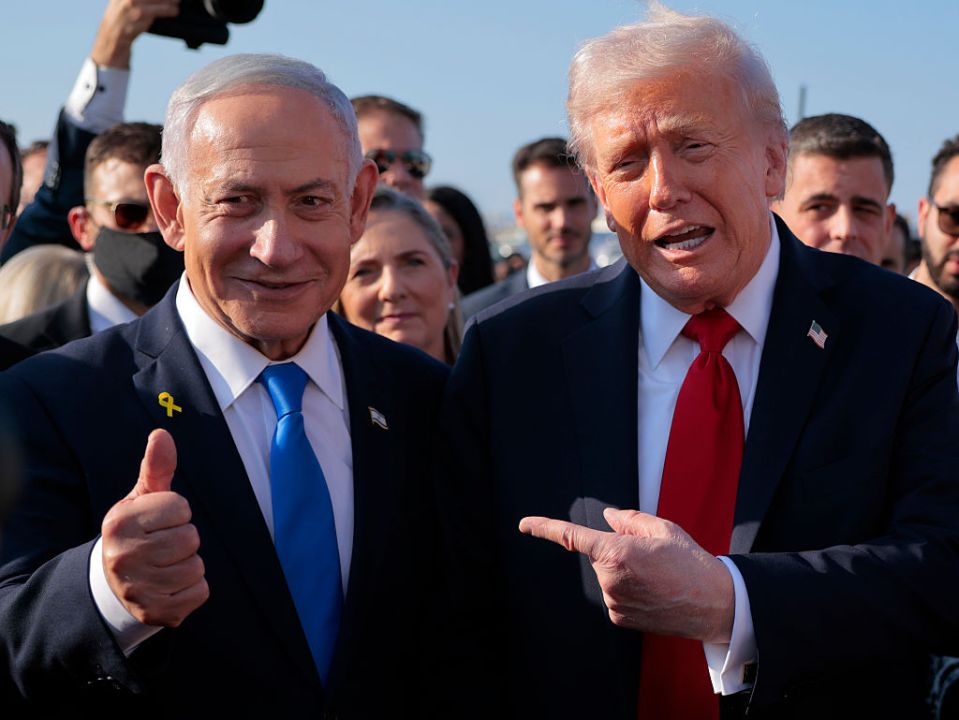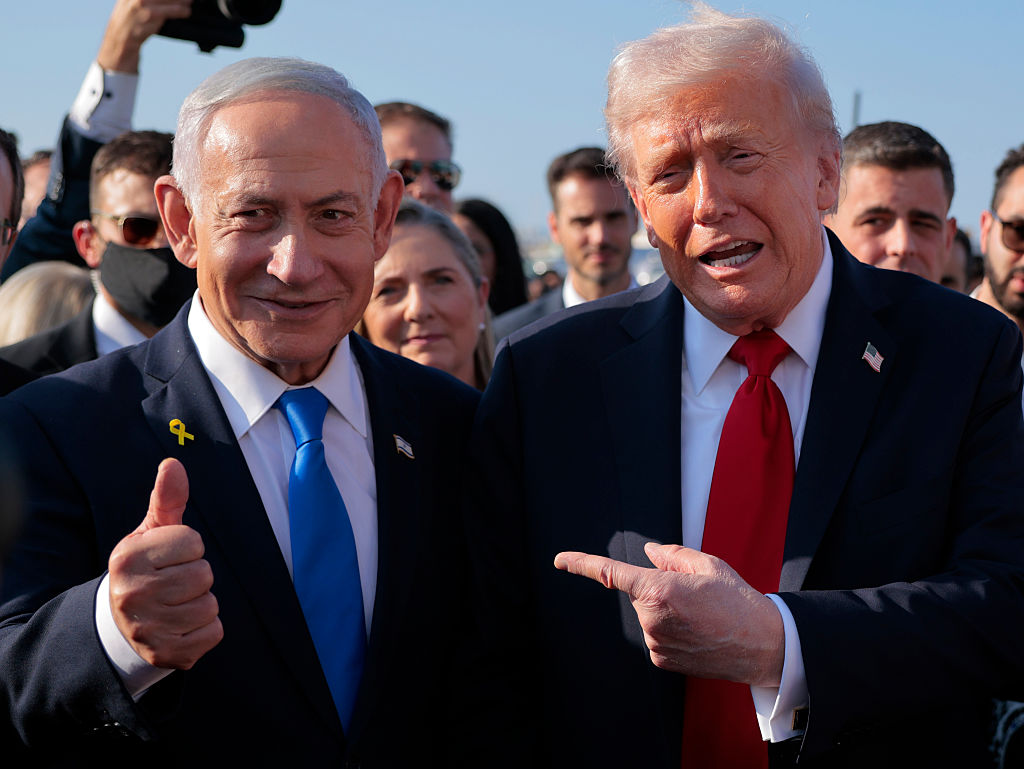Imagine, for a moment, the world we narrowly escaped. A world in which Joe Biden, frail and fading, remained in the 2024 presidential race and, with the exhausted assent of a compliant media and a protective establishment, was returned to the White House. A world in which his decisive televised collapse never quite happened or was quickly obscured. In this alternate reality, Biden staggered through the campaign and secured just enough ground to claim victory.
If the career diplomats sneered at the ‘real estate men’ entering geopolitics, they may now see: sometimes, it takes builders to rebuild the world
Had that happened, the consequences would have been severe, not just for the United States, but for every corner of the world still dependent on clarity, strength, and moral resolve. In the Middle East, the results would have been nothing short of catastrophic.
Israel, reeling from the 7 October massacre, would have found itself increasingly throttled. Biden’s second-term administration would have cut or conditioned weapons shipments, stalled munitions resupply, and imposed political red lines on Israeli military operations. The unspoken but unmistakable goal: to constrain Israel’s war effort until its strategic momentum was lost.
Biden would never have authorised ‘Midnight Hammer’, the joint Israeli-American strike that dealt a devastating blow to Iran’s nuclear programme. Iran would have crossed the nuclear threshold, arming it with impunity and emboldening it in the face of Western restraint. Hamas, sheltered by ceasefire diplomacy and propaganda lies, would have been strengthened. The hostages would still be there. The Iranian axis would have strengthened across Lebanon, Syria, and Yemen, with no fear of reprisal.
Meanwhile, anti-Semitism in the United States would have escalated further. University campuses would have become open-air theatres of intimidation, unchallenged by the federal government. Jewish students and families would have fled public institutions. Attacks would have risen higher still. Jews would have begun to leave, not just neighbourhoods, but the country.
In Europe, recognition of Palestine with no practical structure or legal foundation would have gone totally unchallenged by the US. The United Nations, rather than being exposed as the corrupt enabler of violence it is, would have been restored to a position of international moral authority.
And yet, none of that happened. Because Donald Trump returned.
What we saw on Monday when Trump appeared in the Knesset was an American bear hug. Not symbolic. Not perfunctory. A full display of power, solidarity, and unwavering alliance. America, the world’s superpower, stood beside Israel, not as a distant observer, but as a committed brother. The message to the region was unmistakable: the United States is back, and it is standing proudly where it belongs.
The ripple effects are already visible. Qatar, long the host of Hamas leadership and a quiet patron of regional ambiguity, is shifting. Following the Israeli and American strikes on Iran, the calculation in Doha changed. When Israeli jets hit Hamas assets on Qatari soil, they did not act alone. The move bore the fingerprints of American approval, and it signalled to the Gulf that the game had changed. Now Qatar is moving, not out of moral clarity, but survival. They know which side is winning, and it is not Iran. US and Israeli strength and tight collaboration has shown them where their allegiances should lie.
After keeping 30 nations’ leaders waiting in Sharm el Sheikh while he poured endless love and praise on Israel and Netanyahu, Donald Trump arrived fashionably late for his own historic summit there. Arab states came not to resist, but to listen. To be shown, politely but firmly, what Trump and the United States expect, and what they will demand. A moment of strategic instruction, backed not only by words but by action. Even the delay sent a clear message: the President’s support for Israel trumped all else. Let the world wait and watch it on full display. The possibility now exists: that Hamas will wilt and disappear, as it should. That the Palestinian movement will be forced, finally, to reform – to abandon terror, rejectionism and self-destruction, and to build something worthy of investment.
The Gulf states increasingly see Israel not as a liability, but as a pillar. Their vision for a stable, modern, prosperous Middle East depends on Israel’s integration. And if the Palestinians sabotage that opportunity again – if they blow it up, literally and politically – they will not be indulged. They will be sidelined yet again,
To imagine parallel histories can be fun, but frivolity is no answer to complexity. And yet here, the contrast is useful. Because we very nearly lived in the dark version of the world described above. We came close.
It is only because of a handful of people, with vision, will, and strategy, that we did not. Trump, Witkoff, Kushner, Netanyahu, Dermer: men of realpolitik, not illusions. They understood the terrain, the players, the stakes. They knew when to apply pressure, when to offer deals, and when to show force. If the career diplomats sneered at the ‘real estate men’ entering geopolitics, they may now see: sometimes, it takes builders to rebuild the world.
And that is the point. When a real estate dealmaker wants to sell you a massive project before he’s even broken ground, he knows he must show you something grand. He comes with computer generated renders and sells you the dream. Only when you buy in can the building begin. And even if the final product changes, the momentum is real, the deal is done, and the project takes shape.
Designers dream. Developers persuade. And the world moves forward. That is why this can work. It does not guarantee success, but it gives us the chance. A far better version of history is unfolding today not by accident, but by action. What happens next will require further intelligence, resilience, and work.
Monday’s razzle dazzle showmanship, life changing reunifications and heart-breaking redemptions might just be the most significant display of technical diplomacy and wizardry I have known in my lifetime. On Sunday, I thought it all quite mad, built on impossible dreams and fantasies that could never be. But as the founder of modern Zionism, Theodore Herzl, famously declared – if you will it, it is no dream.









Comments